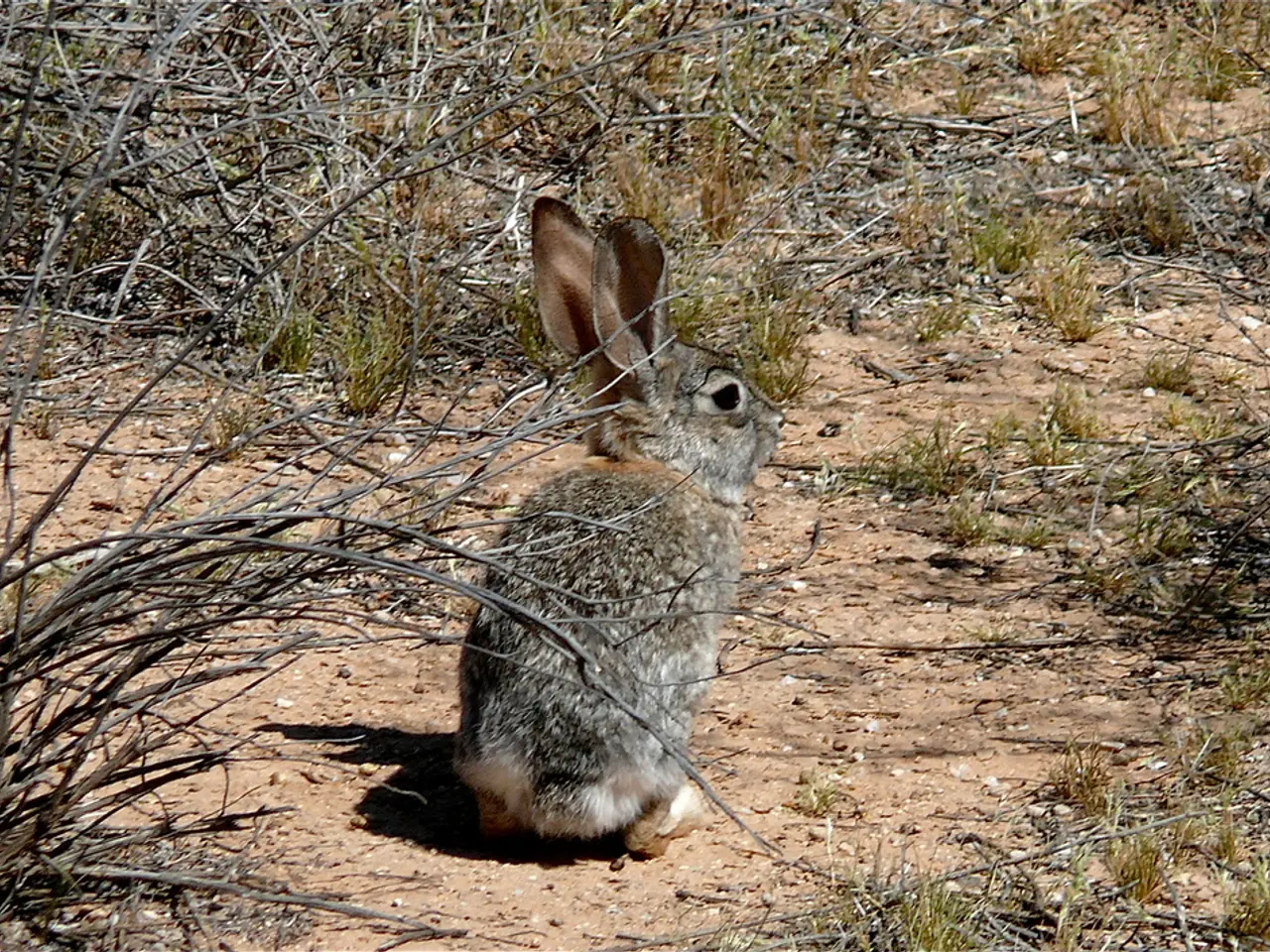Favorable Hay Brands for Rabbits in 2025, Guaranteed to Delight Your Fluffy Companions
Feeding the Right Hay for Your Rabbit's Health
Rabbits require a specific diet to maintain their unique digestive and dental systems. A key component of this diet is hay, which should make up around 85% of a rabbit's daily intake. Here's a guide to the best hays for your pet rabbit.
Grass hays, such as Timothy, meadow, oat, rye, and barley hay, are ideal for rabbits. They are high in fiber and low in protein and calcium, essential for maintaining healthy digestion and dental wear in rabbits.
Timothy hay is a common staple, preferred for its ideal fiber content to support adult rabbits' digestive health. This hay promotes dental and digestive health with 30% crude fiber and no additives or genetically modified organisms.
Mountain Grass hay is a blend of wild grasses high in fiber and low in protein/calcium, mimicking wild rabbit diets and providing texture for dental wear.
Oat hay contains coarse stems, leaves, and seed heads, offering fiber and protein; it is also palatable and adds variety to the diet.
However, it's essential to be cautious with alfalfa hay. It is rich in protein and calcium, suitable only for young rabbits (3 weeks to 7 months) or pregnant/lactating does. Adult rabbits should avoid alfalfa hay due to the risk of excess calcium causing urinary issues and insufficient fiber for digestion.
Meadow hay is a cheaper alternative to timothy hay, packed with fiber and low in sugar. It's a good choice for rabbits who need a lower-cost option.
Orchard grass hay is hand-selected, harvested, and compressed into bales to maintain freshness and allow for portion control. It's thin but high in fiber, ideal for promoting a rabbit's digestion and chewing.
It's crucial to avoid dusty, cheap, or old hay, as they may lack nutrients and could contain mold spores. Always opt for high-quality hay, like Kaytee's large bags of timothy hay, which are grown entirely without pesticides and with no artificial preservatives.
Never give your rabbit mown grass or grass clippings as they can be harmful. Similarly, avoid feeding your rabbit Teff grass hay, as it lacks sufficient protein and calcium for a rabbit's diet.
Oxbow's alfalfa hay is well-suited for rabbits who need more protein and calcium, but too much calcium can cause urinary stones. So, it's essential to monitor the amount of alfalfa hay in your rabbit's diet.
Compacted cubes of suncured Timothy and alfalfa hay can be eaten as treats to encourage chewing and help keep teeth in good shape. These treats should be given sparingly.
Lastly, be aware of plants that are poisonous to rabbits when venturing into the garden, such as bulbs, holly, ivy, yew, foxgloves, primroses, and houseplants.
Ensuring constant access to good-quality grass hay helps maintain healthy weight and prevents digestive upset. By providing high fiber content, coarse textures for dental wear, and supporting a rabbit’s natural feeding behavior and nutritional needs, grass hays are an essential part of a happy and healthy rabbit's diet.
- Rabbits, similar to pets such as dogs and cats, require a balanced diet for their unique health needs.
- The fiber-rich grass hay, including Timothy, meadow, oat, rye, and barley hay, is beneficial for pet rabbits' dental and digestive health.
- Timothy hay, catering to adult rabbits' fiber requirements, is preferred due to its ideal fiber content and no additives, promoting dental and digestive health.
- For a more cost-effective option, meadow hay offers a fiber-rich and low-sugar alternative to Timothy hay, suitable for pet rabbits.
- When choosing pet supplies for your home-and-garden, be mindful of plants that are toxic to rabbits, such as bulbs, holly, ivy, yew, foxgloves, primroses, and houseplants, to ensure their safety.




